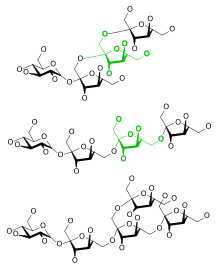This is an old revision of this page, as edited by Citation bot (talk | contribs) at 05:17, 24 December 2018 (Add: pmc, pages, issue, volume. Removed parameters. Formatted dashes. You can use this bot yourself. Report bugs here. | User-activated.). The present address (URL) is a permanent link to this revision, which may differ significantly from the current revision.
Revision as of 05:17, 24 December 2018 by Citation bot (talk | contribs) (Add: pmc, pages, issue, volume. Removed parameters. Formatted dashes. You can use this bot yourself. Report bugs here. | User-activated.)(diff) ← Previous revision | Latest revision (diff) | Newer revision → (diff)| This article needs more reliable medical references for verification or relies too heavily on primary sources. Please review the contents of the article and add the appropriate references if you can. Unsourced or poorly sourced material may be challenged and removed. Find sources: "Psychobiotic" – news · newspapers · books · scholar · JSTOR (December 2018) |  |
Psychobiotics is a term used in preliminary research to refer to live bacteria that, when ingested in appropriate amounts, might confer a mental health benefit by affecting microbiota of the host organism. Under research is whether bacteria might play a role in the gut-brain axis. As of 2018, there is no clinical evidence for any effect of gut bacteria on human brain function.
Types

In experimental probiotic psychobiotics, the bacteria most commonly used are gram-positive bacteria, such as Bifidobacterium and Lactobacillus families, as these do not contain lipopolysaccharide chains, reducing the likelihood of an immunological response. Prebiotics are substances, such as fructans and oligosaccharides, that induce the growth or activity of beneficial microorganisms, such as bacteria on being fermented in the gut. Multiple bacterial species contained in a single probiotic broth is known as a polybiotic.
Research
As of 2018, there had been several clinical trials of psychobiotics; reviews of these trials concluded that there is no good evidence that psychobiotics are safe and effective in humans.
Species

Several species of bacteria have been used in probiotic psychobiotic research:
- Lactobacillus helveticus
- Bifidobacterium longum
- Lactobacillus casei
- Lactobacillus plantarum
- Lactobacillus acidophilus
- Lactobacillus delbrueckii subsp. bulgaricus
- Bifidobacterium breve
- Bifidobacterium infantis
- Streptococcus salivarius
- Lactobacillus rhamnosus
- Lactobacillus gasseri
References
- ^ Sarkar A, Lehto SM, Harty S, Dinan TG, Cryan JF, Burnet PW (November 2016). "Psychobiotics and the Manipulation of Bacteria-Gut-Brain Signals". Trends in Neurosciences. 39 (11): 763–781. doi:10.1016/j.tins.2016.09.002. PMC 5102282. PMID 27793434.
- ^ Romijn AR, Rucklidge JJ (October 2015). "Systematic review of evidence to support the theory of psychobiotics". Nutrition Reviews. 73 (10): 675–93. doi:10.1093/nutrit/nuv025. PMID 26370263.
- ^ Liu B, He Y, Wang M, Liu J, Ju Y, Zhang Y, Liu T, Li L, Li Q (July 2018). "Efficacy of probiotics on anxiety-A meta-analysis of randomized controlled trials". Depression and Anxiety. 35 (10): 935–945. doi:10.1002/da.22811. PMID 29995348.
- Hutkins RW; Krumbeck JA; Bindels LB; Cani PD; Fahey G Jr.; Goh YJ; Hamaker B; Martens EC; Mills DA; Rastal RA; Vaughan E; Sanders ME (2016). "Prebiotics: why definitions matter". Curr Opin Biotechnol. 37: 1–7. doi:10.1016/j.copbio.2015.09.001. PMC 4744122. PMID 26431716.
- ^ Bambury A, Sandhu K, Cryan JF, Dinan TG (December 2017). "Finding the needle in the haystack: systematic identification of psychobiotics". British Journal of Pharmacology. 175 (24): 4430–4438. doi:10.1111/bph.14127. PMC 6255950. PMID 29243233.
- Dinan, Timothy; Stanton, Catherine; Cryan, John (November 2013). "Psychobiotics: A Novel Class of Psychotropic". Biological Psychiatry. 74: 720–726.